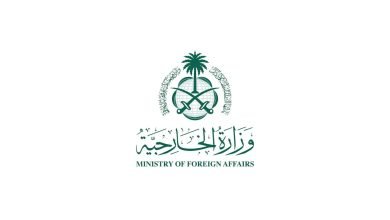Cairo (INA) – The conference of the Arab Thought Foundation, Fikr XNUMX, headed by the Advisor to the Custodian of the Two Holy Mosques, Governor of Makkah Al-Mukarramah Region, Prince Khaled Al-Faisal, continued its work today at the headquarters of the General Secretariat of the League of Arab States by holding a series of sessions and various working groups concerned with discussing the challenges, topics and questions of the participants about the priorities of Arab integration in different fields. Dr. Henry Al-Awit, Director General of the Foundation, confirmed that the conference's questions focused on the challenges and prospects facing the integration process, especially with regard to joint Arab action institutions, where questions and discussions took place about the possibility of the specialized ministerial councils affiliated with the university to find the necessary mechanisms to implement the decisions and projects of Arab integration and how the Arab development funds contribute. In financing and supporting research within the framework of study centers in order to achieve Arab integration. Al-Awit added that the other sessions focused on how to achieve security integration, how to build a model for Arab security to confront extremism, terrorism, external interference, and the dangers of network warfare and space wars, in addition to how to reconcile the principle of national sovereignty and Arab security integration. With regard to the axis of economic integration, he revealed that the discussions revolved around how Arab governments, the private sector and Arab development funds contribute to drawing up strategies for rehabilitating human capacities and reconstruction, and the contribution of integration to supporting knowledge economies in Arab countries. Regarding cultural integration, discussions took place on how to improve the Arabic language in light of the decline in its levels of learning and proficiency, in addition to the role of cultural integration in promoting a culture of citizenship, openness, tolerance and acceptance of the other in Arab societies. The discussions centered on development integration on how to formulate developmental strategic visions that respond to the needs of citizens and future generations in the Arab world, in addition to how to enhance the role of the private sector and civil society in achieving integrated Arab development. (End) a m / p z
one minute





